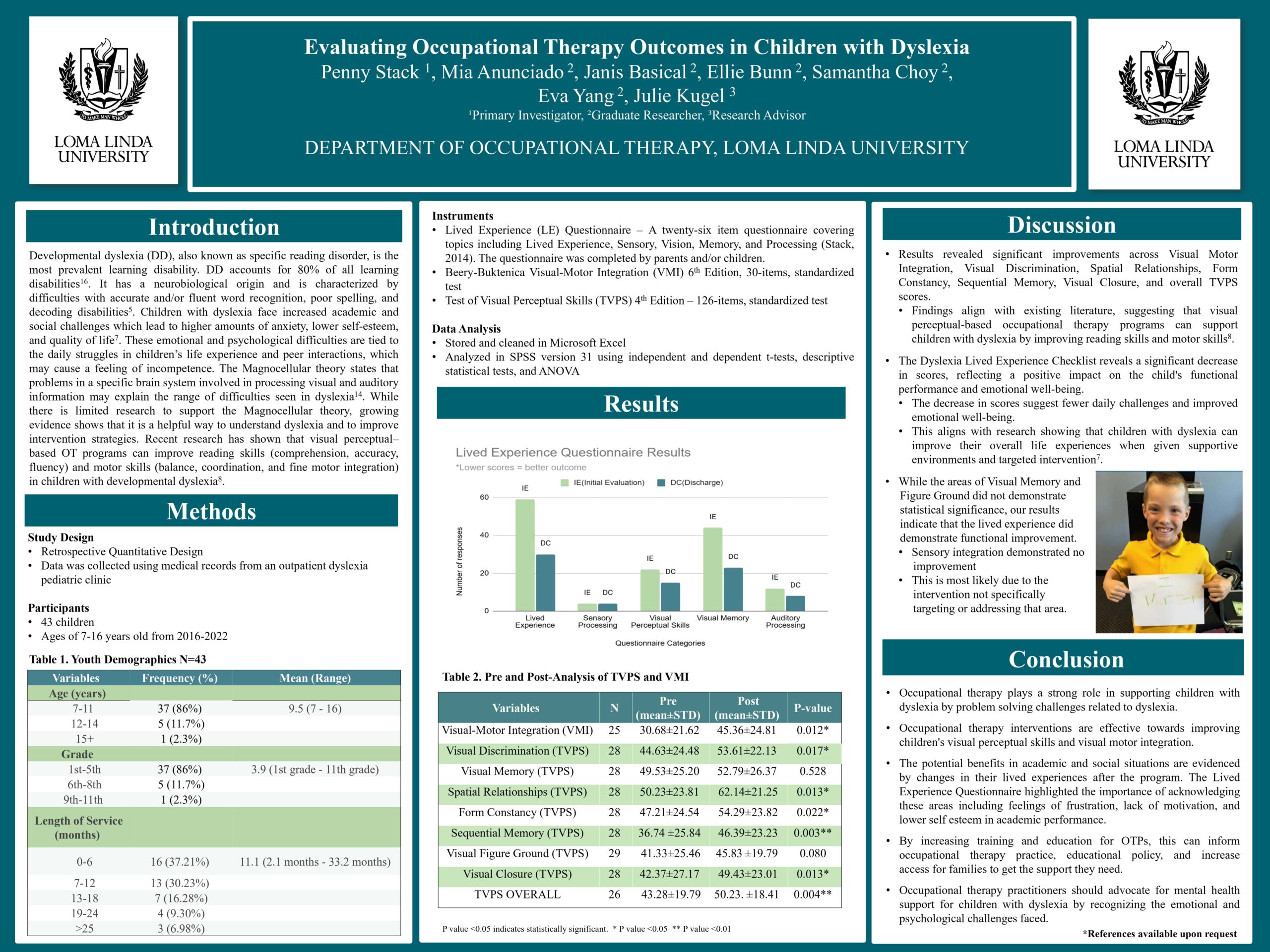Research

Evaluating Occupational Therapy Outcomes in Children with Dyslexia:
- Occupational therapy plays a strong role in supporting children with dyslexia by problem solving challenges related to dyslexia.
- Occupational therapy interventions are effective towards improving children’s visual perceptual skills and visual motor integration.
- The potential benefits in academic and social situations are evidenced by changes in their lived experiences after the program. The Lived Experience Questionnaire highlighted the importance of acknowledging these areas including feelings of frustration, lack of motivation, and lower self esteem in academic performance.
- By increasing training and education for OTPs, this can inform occupational therapy practice, educational policy, and increase access for families to get the support they need.
- Occupational therapy practitioners should advocate for mental health support for children with dyslexia by recognizing the emotional and psychological challenges faced
The Occupational Therapy Connection:
Exploring of the Lived Experiences of Persons with Dyslexia Implications to Practice:
- Current literature supports the role of occupational therapy in addressing executive cognitive functions such as visual perceptual skills and visual motor skills.
- The results of this study indicate persons with dyslexia may also suffer from difficulty with memory, depression and anxiety.
- Explore these themes as the clients’ occupational profile is developed.
- Develop a broader treatment plan to address the psychosocial, executive cognitive functions or motor skills often initially unnoticed as a characteristic of dyslexia.
- The results of this study warrant future research on the role of occupational therapy addressing the psychosocial impact on persons with dyslexia.
